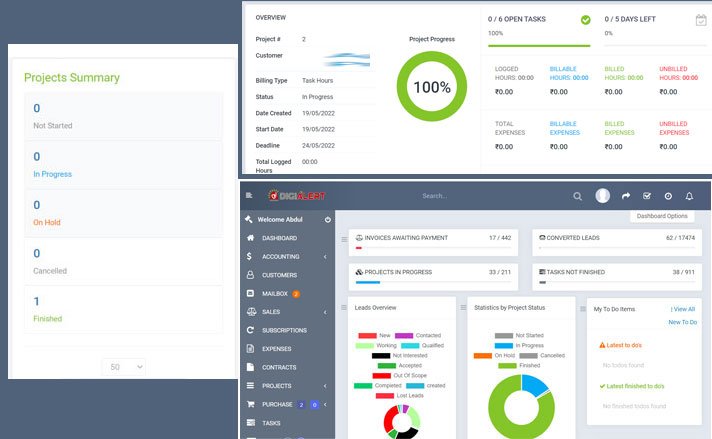Database Security Assessment
Database Security Assessment
WHAT are the
Database Security Assessment
At digiALERT, when we conduct a database security assessment, our goal is to identify vulnerabilities and assess the security of an organization's databases and associated infrastructure. We use a combination of automated tools and manual testing methods to thoroughly analyze the database system and its surrounding environment.
Our assessment process begins with a review of the architecture, design, and configuration of the database system, including the underlying operating system, network infrastructure, and any other associated systems. We evaluate the security measures such as access controls, encryption, and data backup procedures that are in place.
Next, we perform vulnerability scanning and penetration testing to identify potential vulnerabilities in the database and its surrounding systems. This includes testing for common vulnerabilities such as SQL injection, weak authentication, and misconfigured access controls. We also conduct manual testing to identify any other vulnerabilities that may not be detected by automated tools.
We also assess the security of the data stored in the database, including sensitive information such as personal data and financial information. This includes evaluating the encryption and access controls that are in place to protect the data and identifying any data breaches or unauthorized access.
Speak to an expert
key features
Database Security Assessment
Types of
Database Security Assessment
As digiALERT, we specialize in various types of database security assessments. Here are a few examples:
- Vulnerability Assessment: We use automated tools and manual testing methods to identify vulnerabilities in the database and associated infrastructure.
- Penetration Testing: We simulate a real-world attack on the database to identify vulnerabilities and assess the effectiveness of security controls.
- Configuration Review: We review the configuration of the database and associated systems to ensure that they are properly configured and secured.
- Data Security Assessment: We evaluate the encryption and access controls that are in place to protect the data stored in the database.
- Compliance Assessment: We review the database and associated systems to ensure that they comply with industry standards and regulations such as PCI-DSS, HIPAA, and GDPR.
- Risk Assessment: We evaluate the potential impact of identified vulnerabilities and assess the risk to the organization's sensitive data.
Statistics on
Database security Assessment
Speak to an expert
What are the
Data Bases We Audit







How do we do
Database Security Assessment
-
Scoping and objectives: We first define the scope and objectives of the assessment, identifying the systems, networks, and applications that will be targeted during the assessment.
-
Information gathering: Our team conducts extensive research and reconnaissance to gather information about the organization's systems, processes, and people. We use this information to understand the organization's current security posture.
-
Planning and execution: Using the information gathered, our team develops a comprehensive plan of attack and carries out simulated attacks on the organization's systems, networks, and applications.
-
Monitoring: Our team closely monitors the organization's response to the simulated attacks and assesses the effectiveness of the organization's security measures.
-
Reporting and recommendations: After the assessment is completed, our team provides a detailed report that includes a comprehensive analysis of vulnerabilities and weaknesses, as well as recommendations on how to improve the organization's security posture. We assist in implementing these recommendations to strengthen the overall security posture.
WHY Database Security Assessment
WHO NEEDS Database Security Assessment
A database security assessment is a process of evaluating the security of an organization's databases and associated infrastructure. The goal of a database security assessment is to identify vulnerabilities and misconfigurations that could be exploited by attackers to gain access to sensitive data or disrupt the availability of the database.
Database security assessments are necessary for organizations that store sensitive information in databases, such as personal data, financial information, and confidential business information. Without proper security measures, these databases are vulnerable to attacks such as SQL injection, data breaches, and unauthorized access. Additionally, a database security assessment can help organizations comply with industry standards and regulations such as PCI-DSS, HIPAA, and GDPR, which require organizations to implement appropriate security controls for protecting sensitive information.
How often is Database Security Assessment recommended
When it would be performed
The frequency of database security assessments depends on several factors, including the sensitivity of the data being stored, the level of risk that the organization is willing to accept, and the requirements of relevant laws and regulations.
In general, it is recommended that organizations conduct database security assessments on a regular basis, such as annually or biennially. This helps to ensure that any vulnerabilities are identified and addressed in a timely manner, and that the organization's databases remain secure.
However, organizations that handle sensitive data, such as financial information or personal data, may want to conduct assessments more frequently, such as quarterly or even monthly. This is because the consequences of a data breach can be severe, and it is important to minimize the risk of a breach as much as possible.
Additionally, organizations that are subject to regulatory requirements, such as HIPAA or PCI DSS, may be required to conduct security assessments at specific intervals. It is important for organizations to be aware of these requirements and to conduct assessments as needed to ensure compliance.
Speak to an expert
How are we
unique
- Our team has in-depth knowledge and experience in database security, using the latest tools and techniques to conduct assessments.
- We provide comprehensive and actionable reports with clear recommendations for remediation.
- We offer flexible pricing and engagement options to fit the needs of any organization.
- We have expertise in assessing different platforms and technologies including cloud-based databases.
- Our team members hold certified credentials such as OSCP,OSCE,CISSP,CISM, to ensure quality and knowledge of our services.
- We provide continuous monitoring and reporting on the progress of identified vulnerabilities and their remediation.
- We work with clients to develop incident response plans and provide incident response services.
- Our assessments are aligned with industry-standard frameworks such as OWASP and CIS to ensure compliance.
- We provide training and awareness program for clients on best practices for database security.
- Our team is dedicated to providing personalized support throughout the assessment process, to ensure clients achieve optimal security.













 ISO/IEC 27001:2022
ISO/IEC 27001:2022 ISO/IEC 27001:2022
ISO/IEC 27001:2022 ISO/IEC 20543:2019
ISO/IEC 20543:2019 ISO/IEC/IEEE 29119-5:2024
ISO/IEC/IEEE 29119-5:2024 CSA Certificate
CSA Certificate Incorporation
Incorporation Makeinindia
Makeinindia Authorized partner
Authorized partner MSME Chennai
MSME Chennai digiALERT Tan
digiALERT Tan GST Chennai
GST Chennai Pancard
Pancard Amended GST
Amended GST